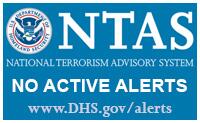Make sure your child understands the following safety tips about strangers and suspicious behavior:
- A stranger is someone that your family does not know well.
- Don’t judge a stranger by their looks, but by their actions. A stranger can look like anybody. They may look pretty, scary, or just normal, and not all strangers are dangerous.
- Recognize suspicious behavior – that is the way to know if a bad situation is starting (e.g. if a stranger asks you to keep a secret – don’t! If a stranger asks you for help to find something (like a lost dog) – don’t! If a stranger says or does something that makes you feel bad, embarrassed or uncomfortable, even if they offer to give you a treat – don’t let them! Say no, yell, and run away! If a stranger invites you into their home – don’t go in! If a stranger offers you a ride – don’t take it! If you think a stranger is following you – yell as loud as you can and run away! If a stranger asks you to disobey your parents – don’t! If a stranger asks you to do something that you are not supposed to do – don’t do it! If a stranger asks you to give them personal information – don’t do it!)
- If a stranger or even someone you know shows suspicious behavior – this is something you should tell an adult that you trust.
- When you need help and you do not know the people around you, you should ask a safe stranger for help (e.g. police officers, firefighters, teachers, principals, librarians, people wearing uniforms that are not acting suspiciously)
- If you are in a bad situation, be confident and assertive. Tell the stranger, “no”, run away, and yell and scream as loud as you can for help – regardless of whether you are inside or outside, and then tell an adult you know or a safe stranger what happened as soon as possible.
- Trust your instincts, act confidently and be aware of your surroundings.
- Ask your parents for permission before you go anywhere (even if it is with someone you know).
- Make sure you know your parents current cell and work phone numbers.
- Know safe places to play, safe paths to take, safe places to go if a bad situation or emergency happens.
- It is usually safer to play with others rather than alone.
- Trusted adults that you know will help you when you need it.


